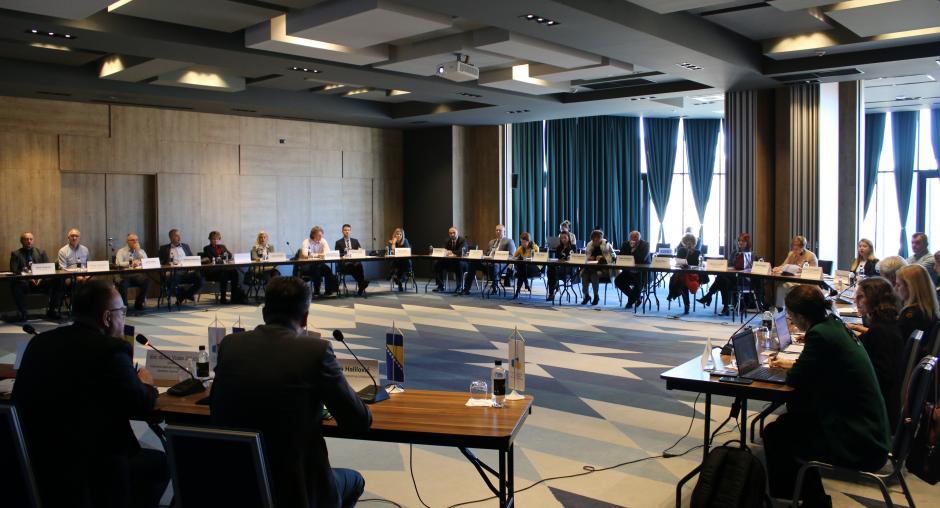Confiscation of proceeds of crime focus of OSCE-organized training course for prosecutors in Bosnia and Herzegovina

The OSCE Transnational Threats Department and the Office of the Co-ordinator of OSCE Economic and Environmental Activities, in co-operation with the OSCE Mission to Bosnia and Herzegovina and the Agency for the Management of Seized Asset of the Federation of Bosnia and Herzegovina, organized a two-day training course on extended confiscation of proceeds of crime in Sarajevo on 5 and 6 of April.
The training course was tailored for cantonal prosecutors. The Chairman of the Standing Committee on Efficiency and Quality of Prosecutor’s Offices at the High Judicial and Prosecutorial Council of Bosnia and Herzegovina, Sanin Bogunić, also attended the event. During his opening remarks, he stressed how training activities are vital for improving the efficiency and transparency of the judiciary and enhancing the capacities of criminal justice practitioners to fight organized crime.
National experts and trainers elaborated on theoretical and practical aspects of extended confiscation of proceeds of crime, while Marija Vučko, Deputy Head of the Croatian State Prosecutor's Office for the Suppression of Organized Crime and Corruption presented their experience and good practices in financial investigations and extended confiscation of proceeds of crime. The training course also served as a platform for discussion among participants and experts on the application of the provisions of extended confiscation in present practice and on the need to use this mechanism more extensively in the future.
The training course was organized as part of the extra-budgetary project “Strengthening the fight against transnational organized crime in South-Eastern Europe through improved regional co-operation in asset seizure, confiscation, management and re-use”, implemented jointly by the Transnational Threats Department and the Office of the Co-ordinator of OSCE Economic and Environmental Activities. The United States, Italy, Germany and the United Kingdom provided financial support to the project.
